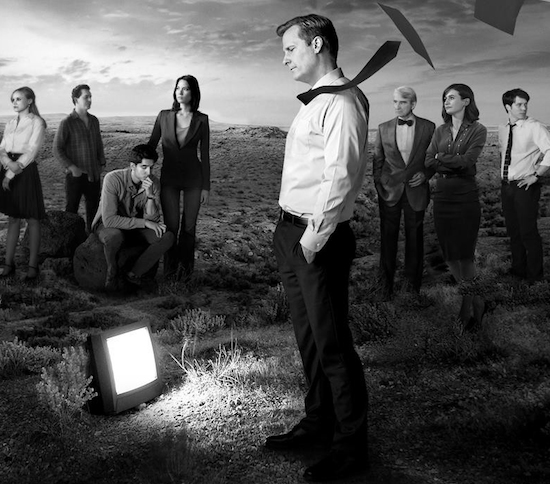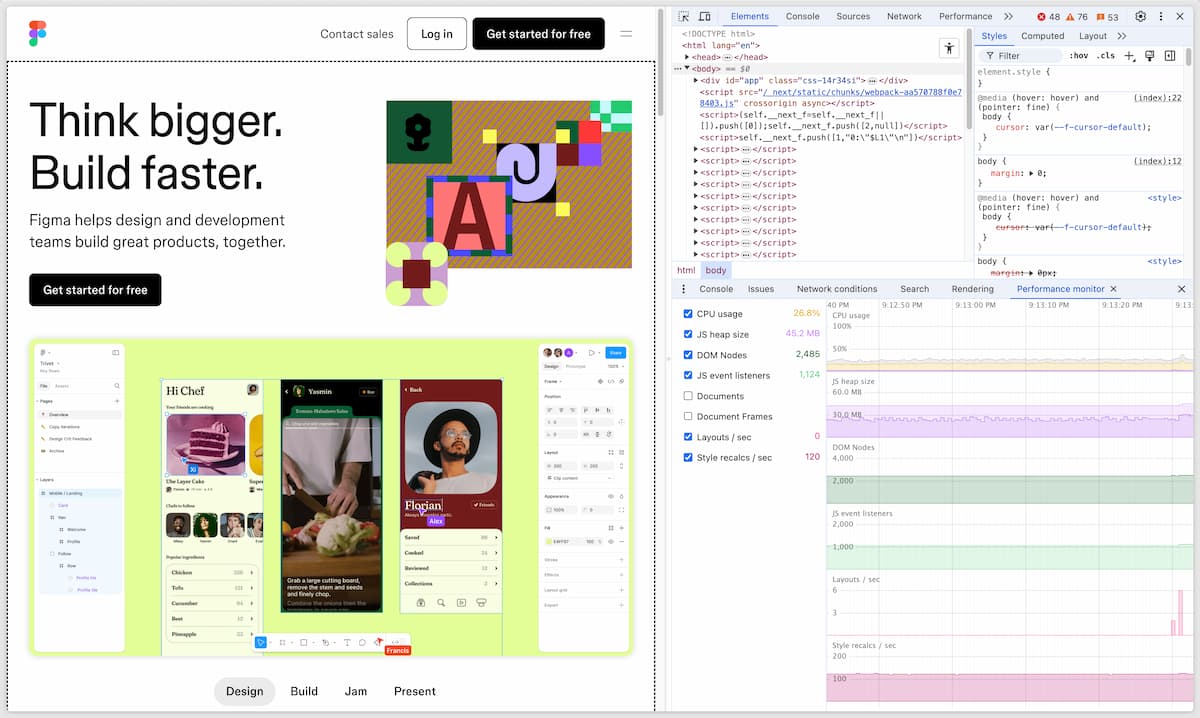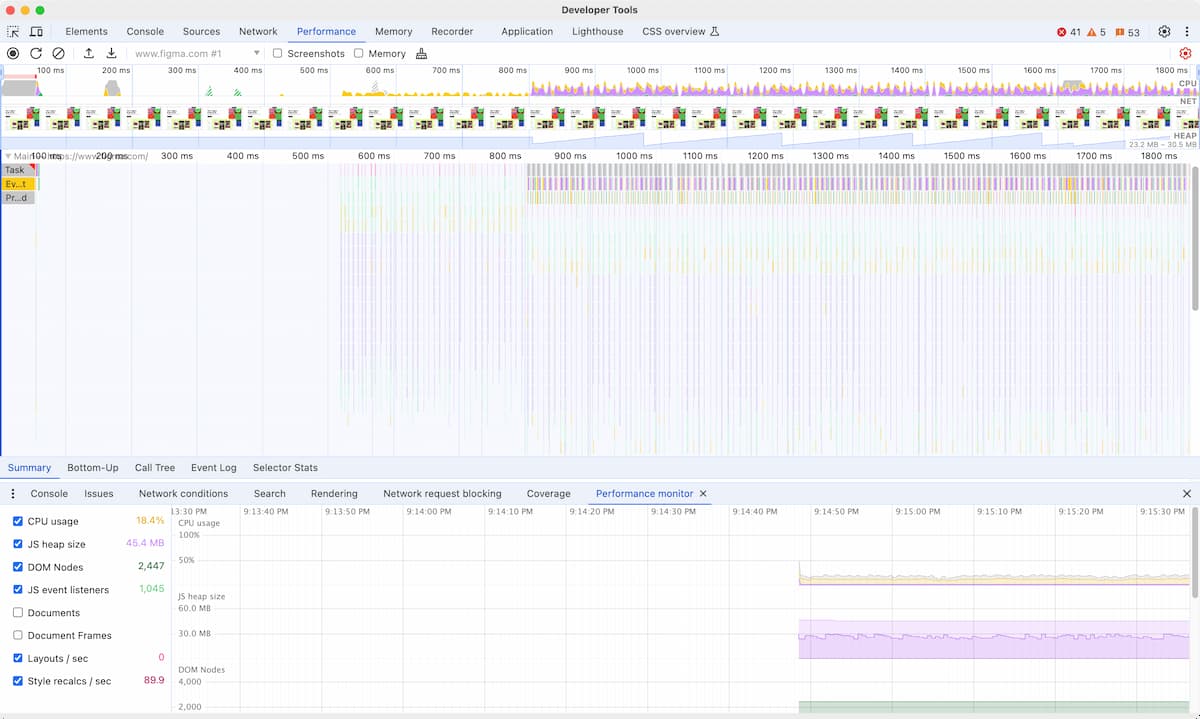(date: 2024-09-08 07:41:23)
date: 2024-09-08, from: Dan Rather’s Steady
A Reason To Smile
https://steady.substack.com/p/shania-twain
date: 2024-09-08, from: Alex Schroeder’s Blog
I must have implemented WebDAV two or three times in the last decade or two. Just now I used mod_dav for Apache to enable WebDAV for some directories.
In theory, it’s great. You can treat the web server as a file server, connecting to it and using your regular file manager and text editor, using your favourite shell to do things. And if your website already uses permissions to restrict access to some locations, you can use the same config files to handle the making of changes.
In practice, however, the operating systems all have such brittle implementations that none of the solutions I had in production ever worked well. It doesn’t matter whether it’s Windows’ File Explorer, macOS’ Finder, the Gnome virtual file system via Nautilus or something else. The only thing that works is the command-line client cadaver. It’s the best. It works. Sooner or later, however, I realize that cadaver is probably not the tool I can expect non-technical people to use. It has the same user-interface as the old ftp command-line client.
I wonder what the issue is. WebDAV is 25 years old. It seems to me that something about the process or the spec must have set it up for failure. Perhaps it was a complex protocol? RFC 2518 for WebDAV is from February 1999, RFC 2616 for HTTP/1.1 is from June 1999. Perhaps the move from HTTP/1.0 to HTTP/1.1 too away all the thunder. There was the DotCom craze and Web 2.0 and what not. Nobody had time for WebDAV? Nobody had a business model for WebDAV? People used FTP and SSH and all that for remote file access, there was no point doing it using web technology? Or perhaps there wasn’t just one library to rule them all and in the darkness bind them?
In any case, I think I need to write this down so I don’t fall for it again in two years. I’ve been falling for it since 2005. Every wiki of mine gets WebDAV support … Looking at my blog it seems that the last time I spent five days to get this right. This time around I’m just tired.
Time to disable mod_dav again.
https://alexschroeder.ch/view/2024-09-08-webdav
date: 2024-09-08, from: Robert Reich’s blog
And last week’s winner
https://robertreich.substack.com/p/caption-contest-hair
date: 2024-09-08, from: Heather Cox Richardson blog
By rights, tonight’s post should be a picture, but Trump’s behavior today merits a marker because it feels like a dramatic escalation of the themes we’ve seen for years.
https://heathercoxrichardson.substack.com/p/september-7-2024
date: 2024-09-08, from: Tracy Durnell Blog
IVF success drops nearly 40% with air pollution exposure: study by Katie Dangerfield (Global News) See also: Moving towards climate accountability + It’s ‘almost impossible’ to eliminate toxic PFAS from your diet. Here’s what you can do by Tom Perkins (The Guardian) Microplastics are infiltrating brain tissue, studies show: ‘There’s nowhere left untouched’ by Douglas Main […]
https://tracydurnell.com/2024/09/07/the-invisible-toll-of-pollution/
date: 2024-09-08, from: Tracy Durnell Blog
Supplements are a Rising Cause of Liver Failure by Dr. Jen Gunther …the risk of supplement-related liver injury and liver injury severe enough that liver transplantation is needed has increased dramatically over the past 20 years. Some estimates suggest supplements may cause up to 43% of drug-induced liver injury in the United States and 19% […]
https://tracydurnell.com/2024/09/07/whats-in-your-pills/
date: 2024-09-07, from: Heather Cox Richardson blog
https://heathercoxrichardson.substack.com/p/september-6-2024-9fc
@Dave Winer’s Scripting News (date: 2024-09-07, from: Dave Winer’s Scripting News)
Do you think you’ve ever had an online chat with an AI impersonating a human without you knowing? Have you had such an experience with someone you know? If no, when do you think you will have such a conversation? Would you mind if a friend used an AI to front for them, so they could do other things while they were “chatting” with you? Would you be liable for anything your avatar did or said?
http://scripting.com/2024/09/07.html#a152059
@Dave Winer’s Scripting News (date: 2024-09-07, from: Dave Winer’s Scripting News)
Also, when the Berlin Wall came down there were no blogs or podcasts. We got what we were given by the news networks and NYT and WSJ.
http://scripting.com/2024/09/07.html#a144247
@Dave Winer’s Scripting News (date: 2024-09-07, from: Dave Winer’s Scripting News)
It’s a fascinating moment, somewhat like when the Berlin Wall came down. When it happened, we were all in kind of a daze. That wall had been there my entire life. No one knew, for many years, what its disappearance would mean. Same with the wall betw the Democratic and Republican parties. It was still the same US when one or the other was in power, there were constants that didn’t change. There was an agreement that politics ends at the border. But now, are there two parties? What became of the one we call Republican?
http://scripting.com/2024/09/07.html#a144133
date: 2024-09-07, from: Om Malik blog
TLDR: Jony Ive’s design agency LoveFrom has reimagined the humble button for Moncler, once again proving that for Sir Jony, everything is up for reinterpretation. It’s a reminder that innovation often lies in refining the familiar, not just inventing the new. Source: Jony Ive’s LoveFrom Reinvents a Button With Moncler Key Points: Moncler is a …
https://om.co/2024/09/07/jony-made-a-button/
@Dave Winer’s Scripting News (date: 2024-09-07, from: Dave Winer’s Scripting News)
 The
next in the series of
podcasts
from 2004. This one was done driving from Banff to Kelowna, on the
way to Seattle.
The
next in the series of
podcasts
from 2004. This one was done driving from Banff to Kelowna, on the
way to Seattle.
http://scripting.com/2024/09/07.html#a141701
@Dave Winer’s Scripting News (date: 2024-09-07, from: Dave Winer’s Scripting News)
I found a bug in opml.visitAll in the OPML package I use in various software including Drummer and FeedLand. Had to fix it, even though there’s a slight chance of breakage.
http://scripting.com/2024/09/07.html#a140727
date: 2024-09-07, from: mrusme blog
This is a follow-up build log on the Corne V3 post, in which I finalize the Kunai case.
https://xn--gckvb8fzb.com/kunai-corne-v3/
@John’s World Wide Wall Display (date: 2024-09-07, from: John’s World Wide Wall Display)
things to consider
date: 2024-09-07, from: Robert Reich’s blog
With Heather Lofthouse and Yours Truly
https://robertreich.substack.com/p/the-upcoming-great-debate-the-coffee
date: 2024-09-07, from: Tracy Durnell Blog
Win of the week: just waiting on the DocuSign for a new project! Going to be helping a city communicate new construction & demolition waste reporting requirements to developers Looking forward to: fall food! (I made oatmeal this morning even though it got up to 88F 😄) Stuff I did: 5.75 hours writing — alas, I […]
https://tracydurnell.com/2024/09/06/weeknotes-aug-31-sept-6-2024/
date: 2024-09-07, from: Heather Cox Richardson blog
One of the things that came to light on Wednesday, in the paperwork the Justice Department unveiled to explain its seizure of 32 internet domains being used by Russian agents in foreign malign influence campaigns, was that the six right-wing U.S.
https://heathercoxrichardson.substack.com/p/september-6-2024
date: 2024-09-07, from: James Fallows, Substack
Why is Joe Biden preparing to block the sale of US Steel? For 19 reasons: Pennsylvania’s 19 electoral votes. That logic may be irrefutable in an election year. But it has real costs.
https://fallows.substack.com/p/election-countdown-59-days-to-go
date: 2024-09-06, updated: 2024-09-08, from: Daring Fireball
https://www.theverge.com/2024/8/29/24231516/spotify-apple-physical-iphone-volume-controls
date: 2024-09-06, updated: 2024-09-06, from: Jason Kittke’s blog
https://kottke.org/24/09/0045239-tom-gauld-and-richard-sca
date: 2024-09-06, updated: 2024-09-04, from: Bruce Schneier blog
The first live video of the Promachoteuthis squid, filmed at a newly discovered seamount off the coast of Chile.
https://www.schneier.com/blog/archives/2024/09/live-video-of-promachoteuthis-squid.html
date: 2024-09-06, updated: 2024-09-06, from: Jason Kittke’s blog
https://kottke.org/24/09/hokusais-the-great-wave-now-on-display-at-the-art-institute-of-chicago
date: 2024-09-06, updated: 2024-09-06, from: Jason Kittke’s blog
https://kottke.org/24/09/0045232-the-open-book-in-wigtown
date: 2024-09-06, updated: 2024-09-06, from: Jason Kittke’s blog
https://kottke.org/24/09/0045235-harris-and-walz-intention
date: 2024-09-06, updated: 2024-09-06, from: Jason Kittke’s blog
https://kottke.org/24/09/0045238-i-know-some-of-you
date: 2024-09-06, from: Heather Cox Richardson blog
https://heathercoxrichardson.substack.com/p/september-5-2024-5f5
date: 2024-09-06, from: Dave Winer’s Scripting News
There’s a difference betw journalism in 2023 and 2024, it really is changing that quickly. They are a mechanism for delivering some really tragic lies now, without correction, and a lot of people will believe them. Esp the two Trump is pushing now about Roe v Wade and Democratic states killing live babies. This isn’t a fumbling Trump, the words were written for him, he’s rehearsed them, they’re powerful lies, and journalism is carrying it. When they comment, it’s far away from the lie. They’ll let him on again and again to lie.
The first time they carried his lies we could excuse it, but not the 50th. They invited him to speak on their air to transmit lies. Transmitting lies is the opposite of what news does.
That means all the idealism we see in The Newsroom was for nothing, we now know how it ended. I don’t think this has caught up with most people yet, and it’s not something the journalists are going to report on, so realization may come slowly – but it happened nonetheless.
We’d be fools if we believe anything that comes from channels that broadcast lies.
That’s what’s so sad about The Newsroom. Their thesis was that an always-striving-to-be-true journalism that goes to jail to protect sources, the Woodward Bernstein, Edward R Murrow, amazing American news, what we were told we grew up with, probably wasn’t even remotely true in 2011 when it was broadcast, and any pretense of it covering the truth in 2024, is gone.
A program like The Newsroom has a new context, it’s no longer a light feel-good comedy, today it’s a tragedy.
http://scripting.com/2024/09/06/165018.html?title=whyJournalismDoesntComeBack
date: 2024-09-06, updated: 2024-09-06, from: Jason Kittke’s blog
https://kottke.org/24/09/big-hockey-players-itty-bitty-rink
date: 2024-09-06, updated: 2024-09-06, from: Jason Kittke’s blog
https://kottke.org/24/09/0045206-dark-energy-which-most-ph
date: 2024-09-06, updated: 2024-09-07, from: Daring Fireball
What’s happening with Apple Intelligence and iPhone Screen Sharing this year is what I expect to happen with every new product or service Apple creates that integrates with iOS: they will come late, or never, to the EU.
https://daringfireball.net/2024/09/the_ios_continental_drift_widens
date: 2024-09-06, from: Robert Reich’s blog
Friends,
https://robertreich.substack.com/p/todays-jobs-report-what-it-means
@Dave Winer’s Scripting News (date: 2024-09-06, from: Dave Winer’s Scripting News)
Journalism doesn’t come back from the election of 2024, any more than the Republican Party does.
http://scripting.com/2024/09/06.html#a154037
date: 2024-09-06, updated: 2024-09-06, from: Jason Kittke’s blog
https://kottke.org/24/09/0045209-elite-athletes-are-using-
date: 2024-09-06, updated: 2024-09-06, from: Bruce Schneier blog
There is a side-channel attack against YubiKey access tokens that allows someone to clone a device. It’s a complicated attack, requiring the victim’s username and password, and physical access to their YubiKey—as well as some technical expertise and equipment.
Still, nice piece of security analysis.
https://www.schneier.com/blog/archives/2024/09/yubikey-side-channel-attack.html
date: 2024-09-06, from: Heather Cox Richardson blog
On September 6, 1901, former steel worker Leon Czolgosz shot President William McKinley at the Pan-American Exposition, a World’s Fair in Buffalo, New York.
https://heathercoxrichardson.substack.com/p/history-extra-for-september-5-2024
date: 2024-09-06, updated: 2024-09-06, from: Jason Kittke’s blog
https://kottke.org/24/09/0045236-the-harris-campaign-poste
date: 2024-09-06, updated: 2024-09-06, from: Jason Kittke’s blog
https://kottke.org/24/09/detailed-miniature-sculptures-of-urban-decay
date: 2024-09-06, from: Alex Schroeder’s Blog
Reactions are an interesting thing. Even simple ❤️ or ⭐ reactions have an effect on how we communicate. Do we feel appreciated? Heard? Is this the end of the conversation? The replies get shorter, it’s time to say good-bye, the last message gets a “like” and we’re done.
My first contact with reactions was Twitter and Facebook, I think. Both accounts have been deleted.
On Signal and Discord, I noticed people using reactions in my gaming groups. There is no notification for these reactions.
Alex 🌈 🦄 🧞 Sound engineer be engineering the sound!
🎵
1 🛠️ 2 👍 1
On Threema, on the other hand, where most of my friends and family are, there’s just 👍 and 👎 and practically nobody uses it. People just reply with emojis instead of reacting with emojis. These being ordinary messages ensure that I get notified.
Look at this, it says “bananen” but for a moment I thought it said “banomen”.
🤔
Like “baverben”. 😂
🤨
The user interface issue for reactions is tricky in chat, because reactions are associated with the message and don’t trigger their own notification. I think this is fine but the result is that only immediate reactions are useful. If somebody goes through older messages of mine to react to them, I won’t see them. They’ve scrolled of my screen.
Reactions in fedi clients where they repeat the message being reacted to and they are aggregated and grouped per day (like in Toot!), they work surprisingly well.
In a corporate context, for email, as implemented by Microsoft in Outlook, for example, I feel that reactions are not cool. At work, people started reacting with 👍 instead of writing back “I agree” and now I can’t just look at my inbox, I get a new notification sidebar with notifications to watch, and since there’s not enough context to the reaction in the sidebar, I have to click through and look at the old email again. This is wasting my time using a bad user interface and it feels disrespectful because it brings reactions from a friends and family context (where I appreciate them) into my work context (where I do not).
2024-09-06. Likes and Reactions by @Sandra.
https://alexschroeder.ch/view/2024-09-06-reactions
@Dave Winer’s Scripting News (date: 2024-09-06, from: Dave Winer’s Scripting News)
I got a beautiful new Pixel 9 Pro yesterday. It was amazingly easy to move the data from the old phone to the new one. Just turn both on near each other, and click a couple of dialogs. Haven’t used it for anything yet. Will report.
http://scripting.com/2024/09/06.html#a131022
date: 2024-09-06, from: Chris Heilmann’s blog
I just created a massive dataset of all the AI generated metadata of the videos of the WeAreDeveloper World Congress and I wanted to extract only the tags. The dataset is a huge array with each item containing a description, generated title, an array of tags, the original and their title, like this: { “description”: […]
date: 2024-09-06, from: Robert Reich’s blog
Please share!
https://robertreich.substack.com/p/spreading-the-truth-about-the-2024
date: 2024-09-06, from: Chris Heilmann’s blog
I am currently working on creating the new Call for Papers for the next WeAreDevelopers World Congress and one of the feedback items we got was that levels like “Expert, Intermediate and Beginner” don’t make much sense. First of all, speakers do not choose the right level as they are worried that a beginner or […]
date: 2024-09-06, from: Heather Cox Richardson blog
The U.S.
https://heathercoxrichardson.substack.com/p/september-5-2024
date: 2024-09-05, from: John Naughton’s online diary
The Bridge Crossing the Severn last Sunday. Quote of the Day I stand against confiscatory taxes, totalitarian collectives and the ideology of the inevitability of the death of every individual. I no longer believe that freedom and democracy are compatible.” … Continue reading
https://memex.naughtons.org/friday-6-september-2024/39837/
date: 2024-09-05, from: Dan Rather’s Steady
Who exactly is on the ballot — Trump or Putin?
https://steady.substack.com/p/feds-say-russia-is-meddling-again
date: 2024-09-05, updated: 2024-09-05, from: Jason Kittke’s blog
https://kottke.org/24/09/0045234-an-introduction-to-the-la
date: 2024-09-05, from: Om Malik blog
We are now living in a time of half-truths and a looming information crisis. The main strength of old media companies is their name and role as arbiters of truth and facts. This means they must avoid acts that harm their name and trust. Sadly, fewer and fewer media firms grasp this idea. The New York Times risks alienating its core “blue state” audience by publishing provocative headlines aimed at generating traffic, potentially jeopardizing long-term loyalty. This approach may cheapen the newspaper’s brand. A recent example of a …
https://om.co/2024/09/05/out-of-time/
date: 2024-09-05, updated: 2024-09-05, from: Jason Kittke’s blog
https://kottke.org/24/09/0045233-cars-have-fucked-up-this
date: 2024-09-05, updated: 2024-09-05, from: Jason Kittke’s blog
https://kottke.org/24/09/0045228-a-working-thumper-from-du
date: 2024-09-05, from: Robert Reich’s blog
Video #1 will be posted tomorrow morning, right here.
https://robertreich.substack.com/p/reminder-tomorrow-starts-our-video
date: 2024-09-05, from: Heather Cox Richardson blog
In his Farewell Address, the nation’s first president, George Washington warned of the dangers of foreign entanglements.
https://heathercoxrichardson.substack.com/p/history-extra-for-september-4-2024
date: 2024-09-05, updated: 2024-09-05, from: Jason Kittke’s blog
https://kottke.org/24/09/einsteins-nuclear-warning-letter-to-fdr-up-for-auction
date: 2024-09-05, updated: 2024-09-05, from: Daring Fireball
date: 2024-09-05, updated: 2024-09-05, from: Jason Kittke’s blog
https://kottke.org/24/09/0045213-this-is-a-website-you
date: 2024-09-05, from: Dave Winer’s Scripting News
I asked ChatGPT to adapt two images.




http://scripting.com/2024/09/05/191114.html?title=adaptations
date: 2024-09-05, updated: 2024-09-05, from: Jason Kittke’s blog
https://kottke.org/24/09/0045143-crash-course-art-history-
date: 2024-09-05, updated: 2024-09-05, from: Jason Kittke’s blog
https://kottke.org/24/09/goodbye-for-now-also-diary-comics
date: 2024-09-05, updated: 2024-09-05, from: Jason Kittke’s blog
https://kottke.org/24/09/0045230-no-way-to-prevent-this-1
date: 2024-09-05, updated: 2024-09-05, from: Jason Kittke’s blog
https://kottke.org/24/09/0045215-lies-by-scientists-can-ki
date: 2024-09-05, updated: 2024-09-05, from: Jason Kittke’s blog
https://kottke.org/24/09/0045229-i-never-expected-to-run
@Dave Winer’s Scripting News (date: 2024-09-05, from: Dave Winer’s Scripting News)
I’ve never written a review on Amazon even though I shop there regularly. I was about to write a negative review for a product they can’t seem to support, that I depend on, but got this message. Weird. I bought the product from the page I wanted to review it on. How else would they determine if I actually purchased the product? They don’t say. They do offer to tell me a joke if I rate products I’ve bought. I’ve heard the company isn’t doing that well now that Bezos has stepped aside. Hopefully this is just a bad set of coincidences.
http://scripting.com/2024/09/05.html#a162459
date: 2024-09-05, updated: 2024-09-05, from: Jason Kittke’s blog
https://kottke.org/24/09/lane-8-season-mixtapes
@Dave Winer’s Scripting News (date: 2024-09-05, from: Dave Winer’s Scripting News)
 I
got a bit of pushback on what I wrote about The Newsroom
yesterday. If
you think it was great, you should watch it again. They got everything
wrong, imho – and the storytelling is as simple as
Atlas
Shrugged. If you loved it in 2012, okay – but we’ve all been through
hell since then. And we know how the news orgs The Newsroom was trying
to model dealt with the challenge. They folded. They gave up. It’s all
bullshit. It’s like watching the story of a great war, that we lost. I
don’t mean bloggers, I mean all of it. If democracy depends on
journalism, then it’s gone. It can’t come back from what they’re doing
now. Think of the hair-splitting they did in The Newsroom, even the
slightest appearance of impropriety. Now they invite politicians on when
they know they’re going to tell hugely damaging lies about very
important things. They’re doing the opposite of what journalism is
supposed to do. They sure as hell don’t care what we think of them. Go
watch it again. It’s a time capsule that will show you how much you’ve
learned since those horribly naive days. Maybe I’ll write more about
this tomorrow.
I
got a bit of pushback on what I wrote about The Newsroom
yesterday. If
you think it was great, you should watch it again. They got everything
wrong, imho – and the storytelling is as simple as
Atlas
Shrugged. If you loved it in 2012, okay – but we’ve all been through
hell since then. And we know how the news orgs The Newsroom was trying
to model dealt with the challenge. They folded. They gave up. It’s all
bullshit. It’s like watching the story of a great war, that we lost. I
don’t mean bloggers, I mean all of it. If democracy depends on
journalism, then it’s gone. It can’t come back from what they’re doing
now. Think of the hair-splitting they did in The Newsroom, even the
slightest appearance of impropriety. Now they invite politicians on when
they know they’re going to tell hugely damaging lies about very
important things. They’re doing the opposite of what journalism is
supposed to do. They sure as hell don’t care what we think of them. Go
watch it again. It’s a time capsule that will show you how much you’ve
learned since those horribly naive days. Maybe I’ll write more about
this tomorrow.
http://scripting.com/2024/09/05.html#a154056
date: 2024-09-05, updated: 2024-09-05, from: Jason Kittke’s blog
https://kottke.org/24/09/0045221-100-tiny-tricks-for-sorti
date: 2024-09-05, from: Heather Cox Richardson blog
https://heathercoxrichardson.substack.com/p/september-4-2024-390
date: 2024-09-05, from: Jonudell blog
“Communities that want to build comprehensive public calendars will be able to do so using a hybrid approach that blends existing iCalendar feeds with feeds synthesized from web calendars. It’s not a perfect solution, but with LLM assistance it’s a workable one. And who knows, maybe if people see what’s possible when information silos converge, … Continue reading Revisiting the Elm City project
https://blog.jonudell.net/2024/09/05/revisiting-the-elm-city-project/
date: 2024-09-05, updated: 2024-09-04, from: Bruce Schneier blog
Really interesting analysis of the American M-209 encryption device and its security.
https://www.schneier.com/blog/archives/2024/09/long-analysis-of-the-m-209.html
date: 2024-09-05, from: Alex Schroeder’s Blog
Back when I read about the West Marches there was one thing I didn’t understand: “There was no regular time: every session was scheduled by the players on the fly.”
How on earth was this supposed to work? In my world, the referee was key. I’d run a game every Monday, or every second Sunday, or what have you. It was a hallmark of how I saw myself. Back in 2011 I said: “I’m a good host.” Building a Better GM has a much longer discussion of this. The key part about this, however, was that I set the dates.
When I started running an open table on Discord, things started to change. I was participating in multi-referee campaigns. At first, I was on a Discord server and ran a game on Mondays. Then @phf would run game on Mondays, too. We’d take turns. Then we got more players and we started picking other weekdays because some people couldn’t play on Mondays. When I joined a second Discord server, for a second multi-referee campaign with @settembrini and others, scheduling got even more flexible. I was running or playing two or three evenings per week, sometimes four.
One of the players was @MadMoses. He is involved in other activities and often had scheduling conflicts. He started asking me about my gaming intentions: In two weeks time, would I be more likely to run a game on Monday or Wednesday? I wasn’t planning ahead and said that I’d run on whichever date worked best for him. After a while, I realized that his inquiries ensured that he could always make it to the game. Almost every session, there was Cédric the illusionist.
At the same time, some players weren’t as online as others and I’ve had a few situations where somebody said: “I’m offline for like ten minutes and by the time I’m back, a game date has been both announced and all the available seats have been filled!” It was true. Something needed to change.
I posted a message saying that Cédric was making it to all the games because his player had been organizing game sessions via direct messages. If other players wanted to do the same, I said, feel free to contact me. And slowly at first but more regularly now, players have been contacting me. The players of Ahriman the necromancer and Boris of the mountain have asked for dates limited to high-level characters so that they could explore the deeper levels of Arden Vul. And now the player of Porphyrios and Serapion contacted me, asking for a date where one of his characters and Aldon the elf might lead an excavation attempt in the ruined city of Arden Vul, since none of the other players seemed to be all that interested.
And just like that, player-organized expeditions have become a reality, in my campaign. We’re 45 sessions into Arden Vul.
https://alexschroeder.ch/view/2024-09-05-player-organized
date: 2024-09-05, from: Alex Schroeder’s Blog
It’s been quiet as far as podcasting is concerned, but a few days ago we recorded another episode of the Internet Office Hours podcast. We talked about Maps and Mapping. This is our 16th regular episode.
The podcast is an “open space”. Much like an open table in gaming an open space in podcasting means that the cast of speakers changes from episode to episode. We all play and run and possibly even write role-playing games. At the beginning of the show, everybody present proposes a topic in two or three sentences, we pick one of the topics and then we talk about it for about an hour.
If you’d like to be on this podcast, let us know. We record Sundays, 20:15 Central European (Summer) Time.
#Internet Office Hours #RPG #Podcast
https://alexschroeder.ch/view/2024-09-05-ioh
date: 2024-09-05, from: Robert Reich’s blog
We were 22 when we sailed across the Atlantic. Now we’re 78, and the SS United States is being evicted from its pier and sunk off the coast of Florida.
https://robertreich.substack.com/p/the-ss-united-states-bill-clinton
date: 2024-09-05, from: Heather Cox Richardson blog
Long tonight, folks, but it’s been quite a day.
https://heathercoxrichardson.substack.com/p/september-4-2024
date: 2024-09-05, updated: 2024-09-05, from: Daring Fireball
https://www.nytimes.com/2024/09/04/us/politics/liz-cheney-kamala-harris-vote.html
date: 2024-09-05, from: Robert Reich’s blog
Her announcement today about capital gains and small businesses
https://robertreich.substack.com/p/what-will-kamala-harris-do-about
date: 2024-09-04, updated: 2024-09-04, from: Jason Kittke’s blog
https://kottke.org/24/09/the-banned-somersault-long-jump
date: 2024-09-04, from: Heather Cox Richardson blog
https://heathercoxrichardson.substack.com/p/september-3-2024-83b
date: 2024-09-04, updated: 2024-09-04, from: Jason Kittke’s blog
https://kottke.org/24/09/useful-time-travel-is-impossible-but-fun-to-think-about
date: 2024-09-04, updated: 2024-09-04, from: Jason Kittke’s blog
https://kottke.org/24/09/0045226-realized-i-often-use-forg
date: 2024-09-04, updated: 2024-09-04, from: Jason Kittke’s blog
https://kottke.org/24/09/0045210-a-new-scientific-analysis
date: 2024-09-04, updated: 2024-09-04, from: Jason Kittke’s blog
https://kottke.org/24/09/0045225-if-you-or-someone-you
date: 2024-09-04, from: Alex Schroeder’s Blog
So you’re considering self-hosting? You heard good things about GoToSocial? I like it. I use it. This post is about the problems you should be expecting at the moment.
It’s not surprising, after all. This is a very prominent sentence in their README:
GoToSocial is still ALPHA SOFTWARE.
But what are the exact problems? Sometimes alpha software is good enough, right?
No post editing. I hope you can handle your own typos. All you have is “Delete and Redraft”. But that orphans all replies, undoes all boosts, forgets all likes and removes posts from bookmarks. “Delete and Redraft” is a sledge hammer. “Edit post” is a delicate quill. And you don’t get to have it. YOLO! (You only live once.)
No filtering. You can mute and block and all that, but when everybody is posting about Monsterdon, the European Song Contest, the US elections, Caturday or Wordle, you can’t filter those hashtags. You must endure the enthusiasm of the people you are following. (I think the developers are implementing things, but it does not seem to have an effect in the front-ends I use, so who knows.)
Limited federation. This one is hard to spot. You want to follow this account and that account and it all seems to work until you go back and find that for one account, your follow request seems to hang in limbo, waiting. You cancel, and follow again. It seems to work. Come back later, back in limbo again, waiting. If you check the log, you’ll find errors about signatures failing and what not. I have no idea. There are currently 8 open issues containing the word ‘signature’. Something is not working and you’ll have to have an alt (a separate account) on a different server that doesn’t have this issue. That makes me sad. 😥
No automatic post expiry. And you cannot use Mastodon Archive because of some version number check the Python Mastodon library refuses to work.
No front-end. There is no front-end. I use apps like Toot! on my phone and Semaphore on the web. I don’t need anything fancy. And for the non-fancy options, I have mastodon.el for Emacs, toot for the command-line, tuba for Gnome, bitlbee-mastodon for IRC, and so on. There are plenty of options.
Markdown in your posts. I like my code blocks.
SQLite on the server. It’s currently 8.4G. The media stuff is 11G.
Memory footprint. I use Monit to monitor processes and this process uses 185.6 MB.
No admin. I haven’t had to run any administration task. Not once. ❤️
https://alexschroeder.ch/view/2024-08-25-gotosocial
date: 2024-09-04, from: John’s World Wide Wall Display
Listened to Episode 85: WordPress in Education – WordPress News on the WordPress Briefing. This episode covers some suggested uses of WordPress in Education. I was please to hear it was not concentrating on tertiary education. The host Josepha Haden Chomphosy (Executive Director of the WordPress project!) gave some good reasons for using WordPress in […]
https://johnjohnston.info/blog/listened-to-wordpress-in-education/
date: 2024-09-04, updated: 2024-09-04, from: Jason Kittke’s blog
https://kottke.org/24/09/different-kinds-of-human-operating-systems
date: 2024-09-04, updated: 2024-09-04, from: Jason Kittke’s blog
https://kottke.org/24/09/0045214-tim-walz-has-tonic-mascul
date: 2024-09-04, from: Dave Winer’s Scripting News
I asked ChatGPT to “colorize” the first picture. The second picture is what it produced. Note I didn’t say “editorialize.” I don’t know what you think but I think it’s art! (I’m serious, I’ll write more about that. I love that it’s making us define art.)


http://scripting.com/2024/09/04/155355.html?title=funnyStory
@Dave Winer’s Scripting News (date: 2024-09-04, from: Dave Winer’s Scripting News)
Aaron Sorkin is like Ayn Rand. Reviewing his stories after you’ve grown up makes you wonder why you liked it in the first place. 😄
http://scripting.com/2024/09/04.html#a153756
@Dave Winer’s Scripting News (date: 2024-09-04, from: Dave Winer’s Scripting News)
I’m watching the HBO series The Newsroom from 2012, it’s an Aaron Sorkin show. It’s fairly insipid, but for some reason I keep watching. They have a multi-episode controversy as they go crazy trying to source a rumor they’ve heard that the US bombed a town in the Middle East with sarin gas, and killed a lot of people. In other words they committed a war crime. Turns out they were set up by multiple people, and they went through all kinds of angst over who should resign and who should be fired, and how they would ever regain the trust of the viewers. It is a Sorkin thing so it is by definition overdone, but in the context of today’s NYT and CNN and all the other schlock “news” that reports Trump’s ever-more-egrious lies not only without fact checking, but knowing for sure the lies are coming. That this has happened to American “journalism” is worse than a war crime. It’s what everyone told us is an essential part of an authoritarian state, we expect everything in the news to be lies. We have now gotten there. It’s good to acknowledge that, imho and stop asking why it is, rather think about what you can do about it.
http://scripting.com/2024/09/04.html#a153237
date: 2024-09-04, updated: 2024-09-04, from: Jason Kittke’s blog
https://kottke.org/24/09/0045222-the-last-coal-fired-power
date: 2024-09-04, updated: 2024-09-04, from: Daring Fireball
https://www.politico.com/news/2024/08/28/trump-zuckerberg-election-book-00176639
date: 2024-09-04, updated: 2024-09-04, from: Daring Fireball
https://eieio.games/essays/the-secret-in-one-million-checkboxes/
date: 2024-09-04, updated: 2024-09-04, from: Jason Kittke’s blog
https://kottke.org/24/09/0045223-david-attenborough-on-cyb
date: 2024-09-04, from: Heather Cox Richardson blog
On September 3, 1783, negotiators signed the Treaty of Paris officially ending the Revolutionary War between Great Britain and the United States.
https://heathercoxrichardson.substack.com/p/history-extra-for-september-3-2024
date: 2024-09-04, updated: 2024-09-04, from: Daring Fireball
date: 2024-09-04, updated: 2024-09-04, from: Jason Kittke’s blog
https://kottke.org/24/09/the-100-best-tv-episodes-of-all-time
@Dave Winer’s Scripting News (date: 2024-09-04, from: Dave Winer’s Scripting News)
 I
don’t understand using an email to send a code to verify the email
address, that you then have to enter into a dialog. Why not just send a
URL that the user can click on? What’s the design rationale for making
the user do the extra steps in remembering the number, switching back to
your app, and entering the number by hand, when it could all be done
with a single click?
I
don’t understand using an email to send a code to verify the email
address, that you then have to enter into a dialog. Why not just send a
URL that the user can click on? What’s the design rationale for making
the user do the extra steps in remembering the number, switching back to
your app, and entering the number by hand, when it could all be done
with a single click?
http://scripting.com/2024/09/04.html#a132038
date: 2024-09-04, updated: 2024-09-03, from: Bruce Schneier blog
This story seems straightforward. A city is the victim of a ransomware attack. They repeatedly lie to the media about the severity of the breach. A security researcher repeatedly proves their statements to be lies. The city gets mad and sues the researcher.
Let’s hope the judge throws the case out, but—still—it will serve as a warning to others.
date: 2024-09-04, from: Robert Reich’s blog
Friends,
https://robertreich.substack.com/p/office-hours-the-most-important-thing
date: 2024-09-04, from: Heather Cox Richardson blog
Last night the Boston Globe published a leaked email from a top volunteer with the Trump campaign, former Massachusetts Republican Party vice chair Tom Mountain, telling volunteers that the Trump campaign “no longer thinks New Hampshire is winnable” and is “pulling back” from that important swing state.
https://heathercoxrichardson.substack.com/p/september-3-2024
date: 2024-09-04, from: Matt Haughey blog
Here are some highlights from the month of August:
We went to Disneyland as a one-last-trip-before-college thing as a family, then we saw Sir Mix a Lot and Smashmouth play our county fair. I did some wheeling and then the Portland Bridge Pedal where they close half the freeways to
https://a.wholelottanothing.org/august-2024-in-photos/
date: 2024-09-04, from: Dave Winer’s Scripting News
I tuned into MSNBC this evening as one of their anchors was about to interview a CNN anchor who just wrote a book about an election in the 1800s.
And that my friends is what passes for news these days. Just passing the time waiting to see if there’s anything left of journalism after the election.
Lalala.

http://scripting.com/2024/09/03/024553.html?title=justPassingTheTime
@Dave Winer’s Scripting News (date: 2024-09-04, from: Dave Winer’s Scripting News)
Today, in 2024, AI cannot create art. But a human being can use AI to create art. It’s a medium, like paint and canvas except it’s not static. It gets new skills all the time. It gives me the ability to create in a way I’ve never been able to before. I can’t wait to see what it can do in a few months or years.
http://scripting.com/2024/09/03.html#a022537
date: 2024-09-03, from: John Naughton’s online diary
The wisdom of dogs This is one of my favourite photographs. It was taken in Antibes in August 2010. We were driving along the beachfront on a blisteringly hot Sunday afternoon when I suddenly saw this scene. The owners of … Continue reading
https://memex.naughtons.org/wednesday-4-september-2024/39821/
date: 2024-09-03, updated: 2024-09-04, from: Daring Fireball
https://www.apple.com/newsroom/2024/08/apple-sports-is-ready-for-football-season/
date: 2024-09-03, updated: 2024-09-04, from: Daring Fireball
date: 2024-09-03, from: Dan Rather’s Steady
Debate strategies for Harris
https://steady.substack.com/p/how-to-take-down-trump
date: 2024-09-03, updated: 2024-09-03, from: Jason Kittke’s blog
https://kottke.org/24/09/a-navajo-weaving-of-an-intel-pentium-processor
date: 2024-09-03, updated: 2024-09-04, from: Daring Fireball
https://www.theverge.com/2024/8/30/24232561/brazil-x-ban-sending-people-bluesky
date: 2024-09-03, updated: 2024-09-03, from: Jason Kittke’s blog
https://kottke.org/24/09/0045211-atul-gawande-tuberculosis
date: 2024-09-03, updated: 2024-09-03, from: Jason Kittke’s blog
https://kottke.org/24/09/0045219-new-school-year-drop-off-
date: 2024-09-03, updated: 2024-09-03, from: Jason Kittke’s blog
https://kottke.org/24/09/0045217-america-must-free-itself-
date: 2024-09-03, updated: 2024-09-03, from: Daring Fireball
https://paulgraham.com/foundermode.html
date: 2024-09-03, from: Heather Cox Richardson blog
https://heathercoxrichardson.substack.com/p/september-2-2024-72b
date: 2024-09-03, updated: 2024-09-03, from: Jason Kittke’s blog
https://kottke.org/24/09/the-district-sleeps-alone-tonight-sylvan-esso-remix
date: 2024-09-03, updated: 2024-09-03, from: Jason Kittke’s blog
https://kottke.org/24/09/0045212-even-if-autonomous-vehicl
date: 2024-09-03, updated: 2024-09-03, from: Daring Fireball
https://www.vanityfair.com/hollywood/story/wolfs-jon-watts-interview-streaming-release-exclusive
date: 2024-09-03, from: Jeff Geerling blog
RF safety experiments - Meat & Pickles demonstrate foldback
<div class="clearfix text-formatted field field--name-body field--type-text-with-summary field--label-hidden field__item"><p>A few months ago, our <a href="https://www.instagram.com/insights/media/3333127873529510767/">AM radio hot dog experiment</a> went mildly viral. That was a result of me asking my Dad 'what would happen if you ground a hot dog to one of your AM radio towers?' He didn't know, so one night on the way to my son's volleyball practice, we tested it. And it was <em>awesome</em>.</p>There’s a video and some pictures in my hot dog radio blog post from back in March.
<span class="field field--name-uid field--type-entity-reference field--label-hidden"><span>Jeff Geerling</span></span>
https://www.jeffgeerling.com/blog/2024/rf-safety-experiments-meat-pickles-demonstrate-foldback
date: 2024-09-03, from: Jeff Geerling blog
What happens when you touch a Pickle to an AM radio tower?
<div class="clearfix text-formatted field field--name-body field--type-text-with-summary field--label-hidden field__item"><p>A few months ago, our <a href="https://www.instagram.com/insights/media/3333127873529510767/">AM radio hot dog experiment</a> went mildly viral. That was a result of me asking my Dad 'what would happen if you ground a hot dog to one of your AM radio towers?' He didn't know, so one night on the way to my son's volleyball practice, we tested it. And it was <em>awesome</em>.</p>There’s a video and some pictures in my hot dog radio blog post from back in March.
<span class="field field--name-uid field--type-entity-reference field--label-hidden"><span>Jeff Geerling</span></span>
https://www.jeffgeerling.com/blog/2024/what-happens-when-you-touch-pickle-am-radio-tower
date: 2024-09-03, updated: 2024-09-03, from: Jason Kittke’s blog
https://kottke.org/24/09/why-tv-is-wrong-for-tolkien
date: 2024-09-03, updated: 2024-09-03, from: Bruce Schneier blog
The NSA’s “National Cryptographic School Television Catalogue” from 1991 lists about 600 COMSEC and SIGINT training videos.
There are a bunch explaining the operations of various cryptographic equipment, and a few code words I have never heard of before.
https://www.schneier.com/blog/archives/2024/09/list-of-old-nsa-training-videos.html
date: 2024-09-03, updated: 2024-09-03, from: Jason Kittke’s blog
https://kottke.org/24/09/0045202-id-missed-that-ray-nayler
@Dave Winer’s Scripting News (date: 2024-09-03, from: Dave Winer’s Scripting News)
The blogroll on scripting.com is a real breakthrough. It’s actually a feed reader, but don’t tell anyone. Actually go ahead and tell them. 😄
http://scripting.com/2024/09/03.html#a151117
date: 2024-09-03, from: Heather Cox Richardson blog
In the 1927 case of Buck v.
https://heathercoxrichardson.substack.com/p/history-extra-for-september-2-2024
date: 2024-09-03, from: David Rosenthal’s blog
The basic aspiration of the LOCKSS Program when we started a quarter century ago was to enable libraries to continue their historical mission of collecting, preserving, and providing readers with access to academic journals. In the paper world libraries which subscribed to a journal owned a copy; in the digital world they could only rent access to the publisher’s copy. This allowed the oligoply academic publishers to increase their rent extraction from research and education budgets.When Macmillan releases a new book, library systems will be able to purchase only one digital copy for the first eight weeks after it’s published. Macmillan is offering this initial copy for half-price ($30), but that has not taken away the sting for librarians who will need to answer to frustrated users. In large library systems in particular, readers are likely to experience even longer hold queues for new Macmillan e-book releases. For example, under the new Macmillan embargo, the 27 branches of the San Francisco Public Library system, serving a city of nearly 900,000 people, will have to share one single copy right when the demand for the new title is the greatest.Gebhart’s use of “purchase” here is misleading, they are signing a two-year lease. Macmillian can make life miserable for libraries and their readers because they are “too big to care”. Gebhart explains:
…
After the two-month embargo period ends, libraries will be welcome to purchase additional copies of the e-book under normal terms, which aren’t great to begin with: typically, a $60 price tag for an e-book that can only be lent out to one user at a time for two years or 52 lends, whichever comes first. After that, the library has to license another e-book.
In a July memo, CEO John Sargent says the publisher’s move is motivated by “growing fears that library lending was cannibalizing sales” of new e-books and a need to “protect the value of your books during their first format publication,” but fails to present any evidence to back up his claims. (He also ignores existing, consistent evidence to the contrary.)On 13the August, the Independent Publishers Group and the Digital Public Library of America announced a deal:
Through this landmark collaboration between IPG and DPLA, libraries around the country will now have the power to purchase and own in perpetuity, rather than merely license, tens of thousands of ebook and audiobook titles from dozens of independent publishers. The agreement will empower libraries to fulfill their mission to provide access to books for readers nationwide. Publishers such as Austin Macauley, Arcadia Publishing, Dynamite Entertainment, Dover Publications and JMS Books, alongside dozens of other renowned indie publishers, are participating in the deal.Of course, none of the major publishers would agree to this. The press release explains:
Now, libraries will be able to purchase books through the Palace Marketplace, a non-profit ebook and audiobook platform developed by The Palace Project in consultation with libraries, for libraries. The Palace Project provides libraries with tools and resources that allows patrons to access the broadest possible range of ebooks and audiobooks sourced from the widest variety of sources. Among the tens of thousands of books that are now available for libraries to own and lend out digitally are contemporary award-winning titles, like Leticia Aguilar’s spellbinding memoir Leaving Patriarchy Behind, Michael Nicholson’s The Mosaic Escalator, a mind-bending adventure story nominated for the Best Fiction Book Award by the Golden Book Awards 2024, as well as classics like Elizabeth Bowen’s debut novel The Hotel.Details of how the technology works are scarce, although the Palace code is on github. The DPLA’s Everyone should have access to knowledge claims:
…
“After more than 12 years explaining to policy makers and publishers why existing license models for ebooks prevent libraries from fulfilling their mandates, this agreement is a win that libraries, publishers and authors should celebrate together,” said Christina de Castell, Chief Librarian & CEO of the Vancouver Public Library. “Now, libraries will be able to take steps to share and preserve authors’ ebooks as we have always shared and preserved their print books. I hope this agreement is a model that leads other publishers towards more flexible licensing terms, so libraries can continue to be the home for our collective knowledge in our increasingly digital world.”
Palace Marketplace, formerly DPLA Exchange, is an e-content acquisitions platform that works seamlessly with the Palace app. With Palace Marketplace, libraries can customize diverse collections beyond the bestsellers, including non-English titles. Member libraries benefit from DPLA’s ongoing publisher negotiations for new, more favorable licensing terms, and have access to our collection of more than 11,000 open access ebooks.So it appears that “members” have access to books they “purchased” hosted at DPLA. Once again, as with e-journal preservation systems such as Portico, this is a welcome development but it isn’t a solution to the underlying problem. It is in fact another instance of the same problem, because the member libraries are renting access to DPLA’s copy. As I understand it, these libraries would be able to download a copy, and preserve it themselves outside the Palace ecosystem, but it isn’t clear whether the terms of use would allow them to provide their readers access to the preserved copy.
The first-sale doctrine (also sometimes referred to as the “right of first sale” or the “first sale rule”) is an American legal concept that limits the rights of an intellectual property owner to control resale of products embodying its intellectual property. The doctrine enables the distribution chain of copyrighted products, library lending, giving, video rentals and secondary markets for copyrighted works (for example, enabling individuals to sell their legally purchased books or CDs to others).But it doesn’t apply to digital copies:
The first-sale doctrine does not neatly fit transfers of copies of digital works because an actual transfer does not actually happen—instead, the recipient receives a new copy of the work while, at the same time, the sender has the original copy (unless that copy is deleted, either automatically or manually). …Mary Minow’s 2017 Future of Libraries – Need First Sale for ebooks explains the importance of first sale for libraries:
E-books have the same issue. Because the first sale doctrine does not apply to electronic books, libraries cannot freely lend e-books indefinitely after purchase. Instead, electronic book publishers came up with business models to sell the subscriptions to the license of the text.
It is essential to libraries, and the term existential would not be too great a term to use, to be able to own digital files, and care for them via preservation and library lends (e.g. to one person at a time) just as they do with print. Can readers count on books being available a year or two or five after publication? The existence of libraries has made this possible from their inception until now.The DPLA echoes this:
“Copyright’s ‘first sale doctrine’ is important to readers and libraries for a number of reasons, not least of which is the way that it facilitates long-term preservation and access,” noted Lyrasis CEO John Wilkin. “Licensing models have threatened this critical underpinning, which is needed for preservation of the cultural record. Lyrasis is excited to collaborate with DPLA and IPG in the creation of a model that will make preservation and access of digital content possible.”Alas, even if the first-sale barrier were removed, the experience of the LOCKSS program shows that the problem would remain. In the paper world building a local collection was essential for libraries to provide service to their current readers. The costs and effort involved in doing so were inescapable. The fact that doing so safeguarded access for future readers was a no-cost, no-effort side-effect. But in the digital world building a local collection is irrelevant to providing service to current readers. They get access from the publisher. The costs and effort devoted to building a local collection are only in the interest of future readers. Thus, given strained budgets, these costs must be minimized. The choice between maintaining a local collection, and simply outsourcing the task of supporting future readers to a service by signing a small check is a no-brainer.
The LOCKSS Program devoted a great deal of engineering effort to
reducing the capital and operational cost, and increasing the security
of, two generations of an
appliance
that libraries could use to build a local collection of the e-journals
to which they subscribed. But in the end most libraries that cared about
protecting access for future readers to this content chose to sign
checks to centralized archives. Of course, it didn’t help that the
publishers of the most expensive content would not allow libraries to
use the appliance to collect it.
https://blog.dshr.org/2024/09/owning-e-books.html
date: 2024-09-03, from: Dave Rupert blog
Weeks ago I was looking in to a performance issue for our animated
spinner component and stumbled across a tool in DevTools I hadn’t used
before:
The
Performance Monitor Panel. In you open Dev Tools > More
Tools > Performance Monitor you’ll see some helpful high-level
charts and graphs of the realtime performance data of your UI.

The Performance Monitor collects performance data in realtime and puts it on a graph. It’s handy for detecting performance problems at a high-level. If your CPU, memory, DOM node count, or event listeners only go up while clicking around, you probably have a leak in your code. The part I was most interested in were style recalculations per second and layouts per second. Our spinner component was triggering style recalculations and layout calls at a rate of 120 per second. Yikes! That’s a lot of extra work on the CPU.
Next I turned on Dev Tools > More Tools > Rendering >
Show Paint Flashes and I could immediately see the tactile
feedback of green boxes thrashing around as the browser repainted the
component hundreds of times per second. The green paint boxes confirmed
that this UI work was happening on the main thread instead of the
compositor thread. The Performance Monitor showed my CPU usage at 5-9%
of my Mackbook Pro. Double Yikes.
The Performance Monitor panel pairs nicely with the top-level Performance panel. While the Performance Monitor panel is very high-level, the Performance panel is an in-depth debugging tool where you can inspect a snapshot of your app down to each function and render call.

Capturing a snapshot in the Performance panel confirmed what I was now seeing. I could see the “red line of death” of dropped frames where I locked the main thread. The remediation steps were pretty simple but I did need to strip down and recode how our animation worked.
contain
overflow: hidden instead of CSS masks
It took a couple of prototypes to shop around a workable solution. The
good news is our animation is off-loaded to the compositor instead of
the main thread now. CPU use is now at 0.2% (down from
5-9%) and our recalcs and layouts are down to 0 but the
animation still chugs along. Truth be told, a loading spinner is a
pretty insignificant component and is only temporary, but reducing CPU
usage by 10% here makes room for other JavaScript activities… like…
y’know… fetching and parsing data.
https://daverupert.com/2024/09/dev-tools-performance-monitor-panel/
date: 2024-09-03, updated: 2024-09-03, from: Jason Kittke’s blog
https://kottke.org/24/09/0045205-is-my-blue-your-blue
@Dave Winer’s Scripting News (date: 2024-09-03, from: Dave Winer’s Scripting News)
I have done this before, when a blog post I wrote became something I wanted to add to over time. Two examples – Rules for standards-makers and Trolls.
http://scripting.com/2024/09/03.html#a144404
date: 2024-09-03, updated: 2024-09-03, from: Jason Kittke’s blog
https://kottke.org/24/09/0045203-colossal-one-of-my-all-ti
date: 2024-09-03, updated: 2024-09-03, from: Jason Kittke’s blog
https://kottke.org/24/09/can-ai-make-art
@Dave Winer’s Scripting News (date: 2024-09-03, from: Dave Winer’s Scripting News)
 At
the beginning of the Trade Secrets
podcast
on Sept 22, 2004, is when I would say podcasting got its name. Adam and
I were the leaders of the community. It had been discussed briefly on
the mail list. We all recognized that what we were doing needed a name.
There was a consensus, it was a small community by then, very collegial.
Dave Slusher had already used the term in his podcast (according to
James
Cridland), so I said in the Trade Secrets
show,
let’s just go ahead and use it. I did mention Ben Hammersley. So he’s
not out of the story, but he’s not the person who gave podcasting its
name. September 2004 was the moment when podcasting became something.
It’s rare in things like this that you can point to a moment, but we can
here,
and the record should make that very clear. You could say Hammersley was
the first to publish the term in a piece he wrote, but he played no role
in the bootstrap. I’d say that by the end of 2004 it was on its way, I
basically stepped back and enjoyed the medium along with everyone else.
Adam started a company. I would have liked to have started a company
then, but it wasn’t meant to be. That all happened 20 years ago.
At
the beginning of the Trade Secrets
podcast
on Sept 22, 2004, is when I would say podcasting got its name. Adam and
I were the leaders of the community. It had been discussed briefly on
the mail list. We all recognized that what we were doing needed a name.
There was a consensus, it was a small community by then, very collegial.
Dave Slusher had already used the term in his podcast (according to
James
Cridland), so I said in the Trade Secrets
show,
let’s just go ahead and use it. I did mention Ben Hammersley. So he’s
not out of the story, but he’s not the person who gave podcasting its
name. September 2004 was the moment when podcasting became something.
It’s rare in things like this that you can point to a moment, but we can
here,
and the record should make that very clear. You could say Hammersley was
the first to publish the term in a piece he wrote, but he played no role
in the bootstrap. I’d say that by the end of 2004 it was on its way, I
basically stepped back and enjoyed the medium along with everyone else.
Adam started a company. I would have liked to have started a company
then, but it wasn’t meant to be. That all happened 20 years ago.
http://scripting.com/2024/09/03.html#a132058
@Dave Winer’s Scripting News (date: 2024-09-03, from: Dave Winer’s Scripting News)
I started a new this.how doc on how podcasting got its name, so I could include new information. It links back to the piece I wrote in 2013.
http://scripting.com/2024/09/03.html#a131258
date: 2024-09-03, updated: 2024-09-03, from: Jason Kittke’s blog
https://kottke.org/24/09/0045201-what-are-we-going-to
date: 2024-09-03, from: Robert Reich’s blog
(And Musk’s infantile response to my criticisms)
https://robertreich.substack.com/p/how-to-put-musk-out-of-business
date: 2024-09-03, from: Tracy Durnell Blog
So… is it political to mention that I happily have cats and not children? It shouldn’t be, but it’s been made into a political statement in this election. That becomes a way to silence women when political content on social platforms is policed. See also: Cultural coercion and the question of choice Who decides […]
https://tracydurnell.com/2024/09/02/childfree-cat-lady-%f0%9f%91%8b/
date: 2024-09-03, from: Heather Cox Richardson blog
In an interview with right-wing host Mark Levin on the Fox News Channel last night, Trump complained about the new grand jury indictment of him for trying to steal the 2020 presidential election.
https://heathercoxrichardson.substack.com/p/september-2-2024
@Dave Winer’s Scripting News (date: 2024-09-02, from: Dave Winer’s Scripting News)
And the show notes for the podcast from Sept 2, 2004. Fans of Adam Curry’s podcasting will like this one. It’s about this time that the collaboration starts becoming a community. Next episode is on Sept 5.
http://scripting.com/2024/09/02.html#a212559
date: 2024-09-02, from: Heather Cox Richardson blog
https://heathercoxrichardson.substack.com/p/september-1-2024-d17
date: 2024-09-02, updated: 2024-09-02, from: Daring Fireball
https://www.gq.com/story/brad-pitt-george-clooney-gq-cover-story
@Dave Winer’s Scripting News (date: 2024-09-02, from: Dave Winer’s Scripting News)
WordPress and GitHub fit into similar niches, but one is for writers and the other for developers.
http://scripting.com/2024/09/02.html#a143453
date: 2024-09-02, from: Daniel Stenberg Blog
Yes! It is yet again time for a dual Zoom-twitch curl webinar. This one-hour (or so) session will be live-streamed on Twitch and broadcast on Zoom concurrently. Of course entirely free to attend. Date: September 5, 2024Time: 17:00 UTC (19:00 CEST, 10:00 PDT) Everyone uses curl, the Swiss army knife of Internet transfers. While this … Continue reading webinar: mastering the curl command line
https://daniel.haxx.se/blog/2024/09/02/webinar-mastering-the-curl-command-line/
date: 2024-09-02, from: Dave Winer’s Scripting News
The problem with Mastodon is its protocol is underspecified, therefore interop is really hard, and ultimately the standard, if any emerges, will be decided by big tech companies and will be ridiculously complex.
I think Bluesky has a better chance of being a solid standard you can build on, though I find it fairly incomprehensible, but other people seem to understand it well enough, and I’ve been able to get it to do what I need. Kind of like Amazon’s web service APIs. The designers seem smart, and are accessible (a big plus). On the other hand, I’ve already had apps built on their api break.
Neither one is in a particularly strong position.
Bluesky should factor their API, provide a profile, and a simple API you can adapt to in a weekend, for most common things people want to hook into. And they should commit to not breaking that profile. Their protocol has a lot of generality that gets in the way of doing things that 99% of devs need to do.
Of course Mastodon isn’t supposed to be an API, the underlying API was supposed to be ActivityPub, but as I understand, that isn’t complete, and they need the functionality now, so they’ve implemented a REST API for the other stuff. Makes sense, it’s what I would do in this situation. On the other hand, that pretty much guarantees that a big part of this interface is going to be deprecated, meaning many developers, myself included, will just wait till we get there.
As I said above I fully expect Meta (ie Facebook) will drive that process, that people will choose to interop with their product over Mastodon and over ActivityPub. Names like “fediverse” get walked over and perverted by big tech companies. We will find ourselves soon talking about the Meta-fediverse and the Masto-fediverse or (somesuch).
I’ve seen countless of good, clear, solid ideas get muddied by big tech companies. This idea, the fediverse, got completely muddied before the BigCos got involved. Still more hard work to do, and it must be working together. It doesn’t work if people try to throw their non-existent weight around. That’s basically with the big companies.
http://scripting.com/2024/09/02/133332.html?title=blueskyVsMastodonAsOpenApis
@Dave Winer’s Scripting News (date: 2024-09-02, from: Dave Winer’s Scripting News)
 In
hindsight
Medium
chose the wrong business model. They could have done what Automattic has
done with WordPress. It’s a private company so I don’t know how much
it’s growing or how profitable it is, but from outside it’s obviously
growing and profitable. Basically, charge writers for the service, or
lots of services. Little extras you can add to your site. Use it as a
hook to sell domain names (huge recurring business). And open source the
Medium editor, when it came out it was a breakthrough in usability, and
offer it to Google to bundle with Chrome, upgrade the whole web while
you’re at it. With billions of windfall from the success of Twitter, why
argue over nickels and dimes. That’s what I always wondered about the
thinking behind Medium. Ev had the ability to change the course of the
industry, and make the same kind of money Google and Microsoft make. And
yes, I did urge him to do
all
this at the time, publicly (didn’t have access to him privately, if
you can believe that).
In
hindsight
Medium
chose the wrong business model. They could have done what Automattic has
done with WordPress. It’s a private company so I don’t know how much
it’s growing or how profitable it is, but from outside it’s obviously
growing and profitable. Basically, charge writers for the service, or
lots of services. Little extras you can add to your site. Use it as a
hook to sell domain names (huge recurring business). And open source the
Medium editor, when it came out it was a breakthrough in usability, and
offer it to Google to bundle with Chrome, upgrade the whole web while
you’re at it. With billions of windfall from the success of Twitter, why
argue over nickels and dimes. That’s what I always wondered about the
thinking behind Medium. Ev had the ability to change the course of the
industry, and make the same kind of money Google and Microsoft make. And
yes, I did urge him to do
all
this at the time, publicly (didn’t have access to him privately, if
you can believe that).
http://scripting.com/2024/09/02.html#a125552
@Dave Winer’s Scripting News (date: 2024-09-02, from: Dave Winer’s Scripting News)
Here’s the show notes page for the podcast from Sept 1, 2004.
http://scripting.com/2024/09/02.html#a124550
@Dave Winer’s Scripting News (date: 2024-09-02, from: Dave Winer’s Scripting News)
September 2004 was the month when podcasting became a real community thing. Twenty years ago. I did eight podcasts that month. The mail list, which Adam started, was going strong. This is the month where podcasting got its name, thanks to some brilliant creativity from Dannie Gregoire. Until then we were calling them “audio blog posts” or some variant thereof. You can see it in this Google Trends graph. I started a special feed to echo my programs from 2004, I even got it registered in Apple’s podcast database. There will be two podcasts in the feed today because I missed the one from yesterday. Still diggin!
http://scripting.com/2024/09/02.html#a122308
date: 2024-09-02, updated: 2024-09-02, from: Bruce Schneier blog
Interesting vulnerability:
…a special lane at airport security called Known Crewmember (KCM). KCM is a TSA program that allows pilots and flight attendants to bypass security screening, even when flying on domestic personal trips.
The KCM process is fairly simple: the employee uses the dedicated lane and presents their KCM barcode or provides the TSA agent their employee number and airline. Various forms of ID need to be presented while the TSA agent’s laptop verifies the employment status with the airline. If successful, the employee can access the sterile area without any screening at all…
https://www.schneier.com/blog/archives/2024/09/sql-injection-attack-on-airport-security.html
date: 2024-09-02, from: Alex Schroeder’s Blog
The One Page Dungeon Contest submissions are being read and discussed by the judges in private but if you have a submission you’d like to get a paragraph of review and feedback on, let me know. I’m happy to write a few words on this page.
Sundial Siphon: I love the myconid picture and map; I had to read the part about the rotating map multiple times and I’m still not sure it really contributes to the game. Sometimes doors cannot be opened, sometimes some rooms cannot be reached, but I’d have to see it at the table. I liked the colour coding of monsters and connections. It says twice “Takes some time to clear” but it’s unclear what the drawback is since there are no random encounters? Is it a quarter rotation? Reading the Siphon makes me think that after 4 phases all player characters are trapped in constructs? That seems rather harsh. The dungeon says that that players are racing against the clock but I think players wouldn’t know that, so some sort of warning might be apt? There’s a warning in room 4 but I feel a better warning is required, or the siphon should only affect room 5? In any case, the dungeon seems promising! 😄
Epona’s Temple: I love the idea of achieving a permanent blessing of Epona. The map is beautiful. I feel that the map doesn’t make clear which of the obstacles are easy to sidestep. Can people go from 3 to 5 without crossing 4 or 8? In 4 there’s a presence of insects but it wasn’t clear to mean what that entails since there are no insect stats. From a logic perspective the abandoned camp is puzzling. In any case, the rewards at the end are my favourite thing. They match the premise at the entrance and the theme of the temple itself. Love that. E gostei muito de ver um versão que não seja Inglesa. Muito bem feito! 😄
https://alexschroeder.ch/view/2024-08-22-one-page-dungeons
date: 2024-09-02, from: Alex Schroeder’s Blog
I tried to send an email from Emacs and it didn’t work. The error was:
msmtp: account default not found: no configuration file available
I was able to reproduce the problem with the following
hello.txt file:
From: Alex <alex@alexschroeder.ch>
To: Alex <alex@alexschroeder.ch>
Subject: Test
This is the test.
And then feeding that to msmtp with debugging enabled
(-d) and reading recipients from the mail
(-t):
msmtp -d -t < hello.txt
Now I had more info, however:
ignoring system configuration file /etc/msmtprc: No such file or directory
ignoring user configuration file /home/alex/.config/msmtp/config: Permission denied
falling back to default account
msmtp: account default not found: no configuration file available
I checked permissions, and it was 0600 for the config file. Online, I
found a reference to AppArmor. Taking a peek at
/etc/apparmor.d/usr.bin.msmtp I didn’t see anything
surprising. But then I grew suspicious… I had in fact moved
~/.config/msmtp to ~/src/home/.config/msmtp
(which is a Git repository) and replaced that with a symbolic link.
AppArmor didn’t like this and decided that msmtp was not
allowed to read that other file. Moving the directory back solved this
problem.
I guess I’ll be making occasional copies of this file into the Git repository. 😒
https://alexschroeder.ch/view/2024-08-29-msmtp-app-armor
date: 2024-09-02, from: Chris Heilmann’s blog
Hier sind die Resourcen meines Artikels im AI Magazin zum selbst nachlesen: The road to one Billion developers keynote by Thomas Dohmke and Demetris Cheatham of GitHub at WeAreDevelopers World Congress Amazon Cloud CEO Predicts a Future Where Most Software Engineers Don’t Code — and AI Does It Instead In a leaked recording, Amazon cloud […]
https://christianheilmann.com/2024/09/02/eine-milliarde-neuer-entwickler-dank-ki-linkliste/
date: 2024-09-02, from: Robert Reich’s blog
Friends,
https://robertreich.substack.com/p/the-biggest-grocery-merger-in-history
date: 2024-09-02, from: Tracy Durnell Blog
https://tracydurnell.com/2024/09/01/listened-to-memory-reboot/
date: 2024-09-02, from: Heather Cox Richardson blog
Almost one hundred and forty-two years ago, on September 5, 1882, workers in New York City celebrated the first Labor Day holiday with a parade.
https://heathercoxrichardson.substack.com/p/september-1-2024
date: 2024-09-01, from: John Naughton’s online diary
Trompe-l’œil Arles, 2022. Caused me to do a double-take. Quote of the Day “If reading is one of the pleasures – and necessities – of youth, rereading is one of the pleasures – and necessities – of age. You know … Continue reading
https://memex.naughtons.org/monday-2-september-2024/39811/
date: 2024-09-01, from: James Fallows, Substack
Remember when a picture was worth a thousand words? Now a viral tweet or TikTok clip can outweigh whatever else is said about a candidate. Some new examples, and what the press can (and must) do.
https://fallows.substack.com/p/election-countdown-65-days-to-go
@Dave Winer’s Scripting News (date: 2024-09-01, from: Dave Winer’s Scripting News)
The networks should put Trump on time delay and when he says you can legally murder babies in some states, that should be treated as if he said fuck or shit. Put up a screen that explains why he was cut off, then go to commercial, esp during the debate on Sep 10.
http://scripting.com/2024/09/01.html#a205000
@Dave Winer’s Scripting News (date: 2024-09-01, from: Dave Winer’s Scripting News)
Dear NY Times, before we get rid of the penny, let’s open up your op-ed page to include criticism of the NYT. You can handle a little pushback, you need it desperately.
http://scripting.com/2024/09/01.html#a204850
@Dave Winer’s Scripting News (date: 2024-09-01, from: Dave Winer’s Scripting News)
And for some companies, the founder of a company they acquire might make the best CEO when the founder of the original company isn’t available. Again Apple is a great example. Steve Jobs ultimately replaced Gil Amelio, after Apple bought NeXT.
http://scripting.com/2024/09/01.html#a165719
date: 2024-09-01, from: Dave Winer’s Scripting News
Wordle Kitty is watching TV along with 80 other convicted house pets serving life sentences at Attica high security prison. They’re watching a mushy political psycho drama starring Wordle Kitty herself, the cutest most adorable kitten known to mankind. The NYT headline reads “Cushy kitty crushes mushy melodrama in prison laugh riot.”

http://scripting.com/2024/09/01/165153.html?title=cushyKitty
@Dave Winer’s Scripting News (date: 2024-09-01, from: Dave Winer’s Scripting News)
Graham uses Steve Jobs as an example. He knew what was and wasn’t an Apple product. A hired CEO would have to have that explained to him. Sculley, who Graham cites, is a perfectly nice person in my experience, had no idea how to deal with Windows. Very different from a consumer product like fizzy water. Who but Steve Jobs would have thought that an iPod was a proper product for a company that made PCs. I think he himself wanted it, and that’s what made something an Apple product. It’s probably why post-Jobs Apple is pretty much stuck selling only the products Jobs created for them. He told Cook to innovate on his own vision and timetable, probably knowing full-well that nobody would be able to do it. 😄
http://scripting.com/2024/09/01.html#a164543
@Dave Winer’s Scripting News (date: 2024-09-01, from: Dave Winer’s Scripting News)
Another rule for whoever runs a tech company, they must themselves be a fanatical user of the company’s product. They must love it the way a founder loves it. They must think the users are the smartest people in the world because they love the best product in the world. As a founder, I could not visualize the day I left the company for the last time. In hindsight I felt that was the one factor most responsible for the success of the company.
http://scripting.com/2024/09/01.html#a164402
date: 2024-09-01, updated: 2024-09-01, from: Daring Fireball
https://daringfireball.net/thetalkshow/2024/08/31/ep-408
@Dave Winer’s Scripting News (date: 2024-09-01, from: Dave Winer’s Scripting News)
 Paul
Graham wrote a very
useful piece
about “Founder Mode.” As a founder myself, I think I can tell you why
founders have a central role to play as the company grows. They’re the
only ones who know how the company was built, and what works and what
doesn’t and how to keep it consistent for customers and partners, and
the founder, if the company grew, is tuned into to what makes the
company work, and will see opportunities that even well-intentioned
managers miss. I remember when a company I was a developer for, early in
my career, switched out the founder and replaced him with a professional
CEO. The founder had problems managing, and could have used help imho,
but – the founder understood what the company was about, and the
professional claimed to be a “market of one” and therefore didn’t have
an opinion about what products the company should make. That would be
delegated to people he hired. Almost as if the people running a company
were just modules and servers, and if you needed to grow you just bought
new modules. In this case. I can write this because I don’t have to get
approval from anyone else. I’m sure in a company of today someone would
take offense at something I wrote here. That my friends is another
reason why companies have a hard time scaling. 😄
Paul
Graham wrote a very
useful piece
about “Founder Mode.” As a founder myself, I think I can tell you why
founders have a central role to play as the company grows. They’re the
only ones who know how the company was built, and what works and what
doesn’t and how to keep it consistent for customers and partners, and
the founder, if the company grew, is tuned into to what makes the
company work, and will see opportunities that even well-intentioned
managers miss. I remember when a company I was a developer for, early in
my career, switched out the founder and replaced him with a professional
CEO. The founder had problems managing, and could have used help imho,
but – the founder understood what the company was about, and the
professional claimed to be a “market of one” and therefore didn’t have
an opinion about what products the company should make. That would be
delegated to people he hired. Almost as if the people running a company
were just modules and servers, and if you needed to grow you just bought
new modules. In this case. I can write this because I don’t have to get
approval from anyone else. I’m sure in a company of today someone would
take offense at something I wrote here. That my friends is another
reason why companies have a hard time scaling. 😄
http://scripting.com/2024/09/01.html#a155212
date: 2024-09-01, from: Enlightenment Economics blog
Already September 1st, and a tang of autumn in the morning air. I had a two-week holiday with no laptop or emails, and lots of reading. Then a two-week scramble to catch up with the accumulated email and work. So … Continue reading
http://www.enlightenmenteconomics.com/blog/index.php/2024/09/where-did-summer-go/
@Dave Winer’s Scripting News (date: 2024-09-01, from: Dave Winer’s Scripting News)
August is archived. Let’s start September.
http://scripting.com/2024/09/01.html#a124605
date: 2024-09-01, from: John Naughton’s online diary
Yesterday’s Observer column: In August, a thoughtful blogger, Tanner Greer, posed an interesting question to the Silicon Valley crowd: “What are the contents of the ‘vague tech canon’? If we say it is 40 books, what are they?” He was … Continue reading
https://memex.naughtons.org/can-you-judge-the-tech-bros-by-their-bookshelves/39827/
date: 2024-09-01, from: Dan Rather’s Steady
A Reason To Smile
https://steady.substack.com/p/the-chicks
date: 2024-09-01, from: Robert Reich’s blog
And last week’s winner
https://robertreich.substack.com/p/caption-contest-the-view
date: 2024-09-01, from: Heather Cox Richardson blog
Buddy took this picture on his way to work one morning while I was in Chicago at the Democratic National Convention.